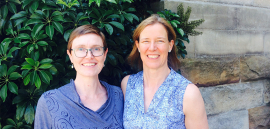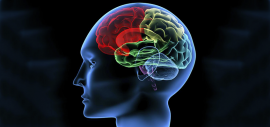Blog: The Brain Dialogues, filtered by tag: Research Findings
Does Social Interaction Reduce Risk of Dementia?
DR ANNE-NICOLE CASEY
How people interact with and perceive one another, and each person’s thoughts and feelings about the quality of those interactions and relationships, can affect physical and mental health and well-being. Social cognitive function, which broadly refers to the way our brain processes social information, is recognised as an important marker of how efficiently our brain processes information in general1. Interestingly, the number of individuals with whom a person interacts frequently is associated with their short-term memory capacity2. Some studies report that having larger… Read More
Findings from the Older Australian Twins Study
HEIDI DOUGLASS | h.douglass@unsw.edu.au
Established by CHeBA staff in 2007, the Older Australian Twin Study (OATS) is the largest and longest running Australian research study of its kind investigating healthy brain ageing. By studying older twins (aged 65+ years) over time, OATS allows researchers to investigate the complex interactions between multiple genetic and environmental factors which cause brain diseases. Over the last decade, OATS has generated over 32 published papers and contributed to 8 international consortia, providing valuable insights into healthy brain ageing and age-… Read More
Is the Incidence of Dementia Declining?
PROFESSOR PERMINDER SACHDEV, MD, PhD
It’s rare to hear good news about dementia, so two recent reports showing it may be becoming less common created a fair amount of excitement.
Not a week goes by without some new promised therapy for dementia having failed in a clinical trial. The joke in dementia circles is that “the cure for dementia is only five years away, but will always remain five years away”. But things perked up considerably when the reports in the prestigious medical journal Lancet showed that dementia rates seem to be declining.
Study on Prevalence
The first report was from… Read More
Fasting for a Longer Healthy Life: Is There a Scientific Basis?
PROFESSOR PERMINDER SACHDEV, MD, PhD
Fasting has a long tradition in most cultures and religions. Lord Buddha exhorted his followers to not eat the evening meal, attributing his good health and “of being without illness and of buoyancy and strength” to this practice. Fasting was ritualised in many aspects of Christianity and Judaism, and became the fourth of the five pillars of Islam. Religious fasting was intertwined with ritual and spiritual discipline, and became a form of penitence and identification with the poor and unfortunate.
The health benefits of fasting were not lost on the… Read More
What's New in Alzheimer's? Pacing the Brain
PROFESSOR PERMINDER SACHDEV, MD, PhD
As a clinician, I regularly advise my patients with memory problems to keep mentally and socially active; “keep stimulating your brain” is the message. There could be a new twist to the notion of brain stimulation if some of the current research proves to be beneficial. The National Institute of Health in the United States recently funded a study of deep brain stimulation (DBS) for the treatment of Alzheimer’s.
DBS is not a new technique, and it is regularly used to treat Parkinson’s disease and some other movement disorders. It involves the placement of… Read More





